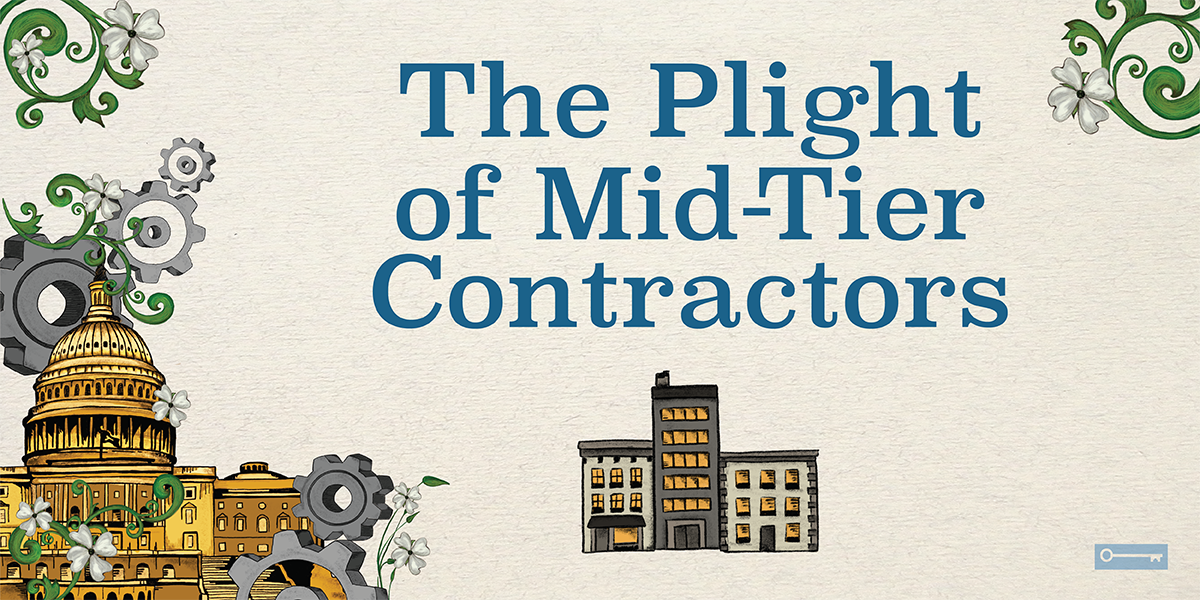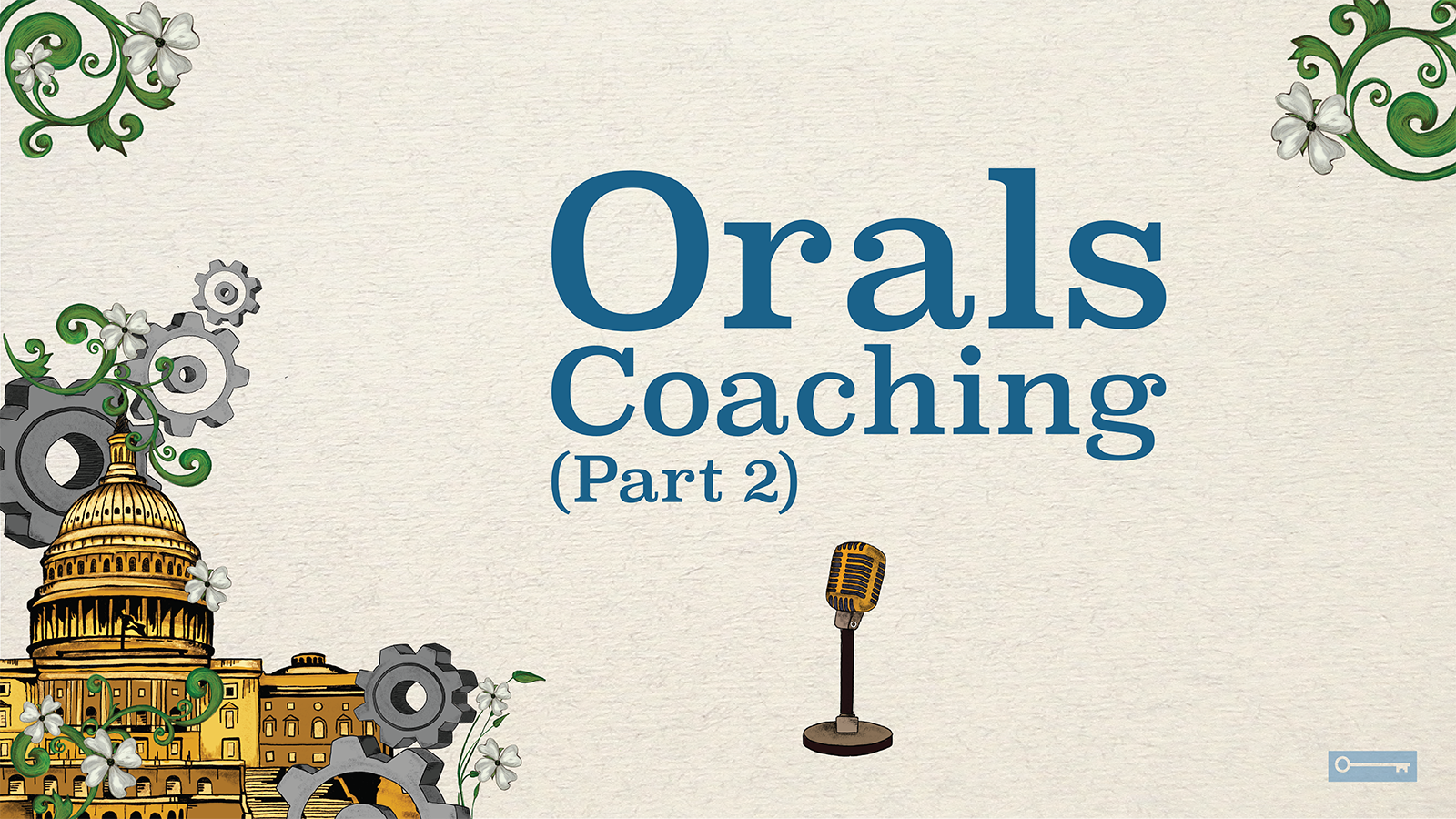With oral presentations becoming a more common requirement in federal contracting, what can companies do to ensure a winning presentation?
In part one of our Orals Coaching segment, learn about the fundamentals of the orals presentation format including the Q&A session, preparation methods, what to expect from the evaluation panel, and more.
Guest: Sara Freeman Marchetto, Director of Proposals at Sherpa 6
Listen to the episode below. You can also listen on Apple I-Tunes or Soundcloud. Afterward, listen to part two of our Orals Coaching podcast and for a more in-depth overview check out our article, "A Guide to Oral Proposals."
Prefer to Read? Read the Interview Transcript Below.
Ray Thibodeaux: Welcome to Keys to Winning. A podcast where we talk about government contracting topics, such as proposal development, business development, win strategies, and more.Keys to Winning, produced by AOC Key Solutions, a leading bid and proposal development firm, gives you a chance to learn from leaders and experts in their fields. I'm Raymond Thibodeaux, today's host of Keys to Winning.
Ray Thibodeaux: Today we talk about the growing popularity of orals presentations in federal acquisitions. Our guest, Sara Freeman Marchetto, is an orals coach at Key Solutions, and helps teams prepare for oral presentations. There's more to it than meets the eye, or the ear, according to Sara. Especially when there's so much at stake.
Ray Thibodeaux: Hi Sara, thanks for being here. What are the advantages that oral presentations have over traditional written submittals?
Sara Freeman: That's a good question, Ray. What we're seeing now is the written requirement as well as an oral presentation requirement. So it doesn't necessarily substitute for a written requirement. It does sometimes, but not often. Not yet, anyway.
Sara Freeman: Once the government has narrowed down the competition to only a handful of companies, then the oral presentation requirement kicks in. The advantage to the government for an orals presentation is that it can be more subjectively scored than a written proposal, since much of it's based on the performance of the team on game day, and the rapport they're able to build with the evaluators.
Sara Freeman: This is why it's so crucial to have the proper coaching before you go in front of a review panel.
Ray Thibodeaux: As you're coaching a team through an orals presentation, what do you find are the hardest things to get the team to do?
Sara Freeman: Well, public speaking is still a leading phobia in the U.S. Even more so than death, according to some polls. That's usually the hardest element to conquer. And after you get over that, then you have to focus on congealing as you said, as a team.
Sara Freeman: I had a team of executives a couple of years back, from three different companies. And many of these people never met each other before day one of the orals coaching session. They didn't know each other, let alone work together. So forming a group of strangers into a cohesive team takes time and the proper coaching method.
Ray Thibodeaux: How long does it usually take to prepare a team for an orals presentation?
Sara Freeman: It varies a great deal really. It depends on the criteria stated in the RFP, and also how much time the government is going to grant you to prepare. There are varying parts to an oral presentation. The amount of time, and the schedule I create, depends on the requirements, which the government should always give you in advance, so you can prepare.
Sara Freeman: There's many different parts of an oral presentation. Most of them will include your PowerPoint presentation, where you go over your technical solution, you introduce the program manager, who should always be the lead, by the way. And the others required to be at the presentation. And you talk about your win themes and the benefits that your solution provides to the government.
Sara Freeman: Then there's also a part called the interview session, or the Q&A. The government can choose to ask questions of individual people on the team, or they can read off question, and anyone can respond. So there's a right way and a wrong way to answer these questions. That's what I teach also during my coaching session.
Sara Freeman: Methods like teeing up the question when someone else has to answer. If the PM, the program manager doesn't know the answer. Then there's also another method called the direct answer method, which I can get into later if we have time.
Sara Freeman: And then the most fun requirement, though, is most fun for me, anyway, is the sample problem or the sample scenario. This is where the government gives you a problem on the fly. You have no time to prepare for it, up until that moment when they give you the problem. Then as a team, you have an allotted amount of time to figure out how you're going to solve the problem. And then you get another allotted time to present.
Sara Freeman: So of course we have to practice time management among other things.
Ray Thibodeaux: Yeah, it's an interesting example that you came up with about giving the team a problem, that they have to solve, which leads me to wonder. How much of the oral presentation is actually being evaluated on a non-verbal level? That the evaluation panel is not only interested in the solution, but also how the team is coming up with the solution. How the team coordinates among itself or congeals. To what extent are those things scored as well?
Sara Freeman: Yes, absolutely. They are looking to see the leadership from the program manager. They're looking to see how the team functions together. Are they argumentative? Can they talk respectfully to each other? Do they get things done with the time management piece? Do they run over the allotted time to solve a problem?
Sara Freeman: There's so many different elements, absolutely. It's not just your technical solution that's being evaluated. It's how you function as a team. And, individually, how you function.
Ray Thibodeaux: This occurs to me because you don't have the kind of instant feedback in a written submittal that you would have in an orals presentation, or that you might have in an orals presentation, where you've got the evaluation panel looking right at you.
Ray Thibodeaux: How common is it for them to nod their heads in approval, if they like something they hear, or shake their head "no" if they don't like something? To what extent does that shape the message that's being given in real time by the presentation team? How much communication is there between the presentation team and the evaluation panel?
Sara Freeman: They can do whatever they want, Ray. And sometimes they do things on purpose to try to throw you off. For example, one of them will get up and leave the room. Or they can even ask your program manager to get up and leave. And then they want to see how you function without the leader. That has happened before on certain Department of Energy oral presentations. There's been times when evaluators have fallen asleep, which is obviously not a good sign.
Ray Thibodeaux: How do you know when a team is ready to actually give their presentation?
Sara Freeman: You know they're ready when they no longer need their note card, because when you first start, of course, you're given note cards and you can write down the key points of what you want to say.
Sara Freeman: Then during the final presentation, the dress rehearsal ... and I actually do have my team get in the suits and whatever they're wearing on game day, and go through it, like you're putting on a show. It's very theatrical. It has many theatrical elements.
Sara Freeman: You have to go through that day, from the very beginning and walking into the room and greeting the panel. Sitting down; there's a proper way to sit. There's a proper way to be in your chair when you're not presenting. There's just so many parts of the day that need to be rehearsed.
Sara Freeman: You know you've done well; you can really feel it, because everything just comes together, everyone nails their part of the presentation. Sometimes the evaluation board will even tell you that they enjoyed the presentation or not.
Sara Freeman: You usually have a chance to meet with them at the beginning, and then you can interact with them again at the end. So you have a pretty good idea of how you did, some of the time. Sometimes they don't say a word. It really does depend on the panel.
Ray Thibodeaux: I'm curious if someone could turn in a lackluster written submittal, but just knock it out of the park in orals. To what extent would that save them from turning in a mediocre proposal?
Sara Freeman: Well, usually, the orals presentation comes in because they have a couple of companies that are very close. Technically, their score is very close, their pricing, and their technical. The orals piece really is what makes or breaks a team.
Sara Freeman: Really, what they're looking for are, are they experts? How well do they work together? And do I like them? Those are really the three elements that the government always wants to know.
Ray Thibodeaux: Why do you think that orals presentations have become so popular in federal contracting? You had mentioned earlier that it does give evaluators a chance to see the proposal team, or probably more to the point, the contracting team work together and coordinate. In some ways, it gives the evaluators a chance to take a test spin before buying the car.
Sara Freeman: Yes, I think so, absolutely. They want the opportunity to meet the individuals that they will be working with on a regular basis.
Ray Thibodeaux: For anyone getting ready to give an oral presentation, what's one of the most valuable pieces of advice you could give them?
Sara Freeman: Hire a good coach. There really is a lot to learn. And you don't know what you don't know. It's a stressful day. And you need to be prepared, because there's a lot riding on this. I mean, we're talking about people's jobs. So of course you want to be as prepared as possible.
Sara Freeman: You have to build team chemistry, and that's something that we do during the orals coaching. You do that through team building activities. I train on effective presentation styles, how to give an effective presentation, both physical and verbal. There's just so many elements that nobody is an expert at; nobody does this on a regular basis. It's really worth the time and money to hire a good orals coach.
Ray Thibodeaux: That's interesting. And it's actually a pretty good point to end on. Sara, thank you for giving us your time to talk about orals presentations, which is just a fascinating aspect of what we do in proposals. I'm hoping that we get a chance to talk more about that down the road.
Sara Freeman: Well, thank you, Ray, I appreciate that.
Ray Thibodeaux: I'm Raymond Thibodeaux, and this has been Keys to Winning, from Key Solutions Incorporated, or KSI. A consulting firm that has helped companies across the country win billions of dollars in federal contracts.
Ray Thibodeaux: Learn more at www.ksiadvantage.com. Or follow us on LinkedIn. Be sure to subscribe for more podcasts in this series, and thank you for listening.
ABOUT KEYS TO WINNING:
Keys to Winning is a podcast that shares practical advice for GovCon professionals from industry experts. Topics covered include Proposal Development, Government Contracting, VOSBs, WOSBs, and more. Episodes are 15 minutes or less and are posted bi-weekly on Thursday morning. The podcast is hosted by Raymond Thibodeaux, a retired Senior Proposal Specialist.







